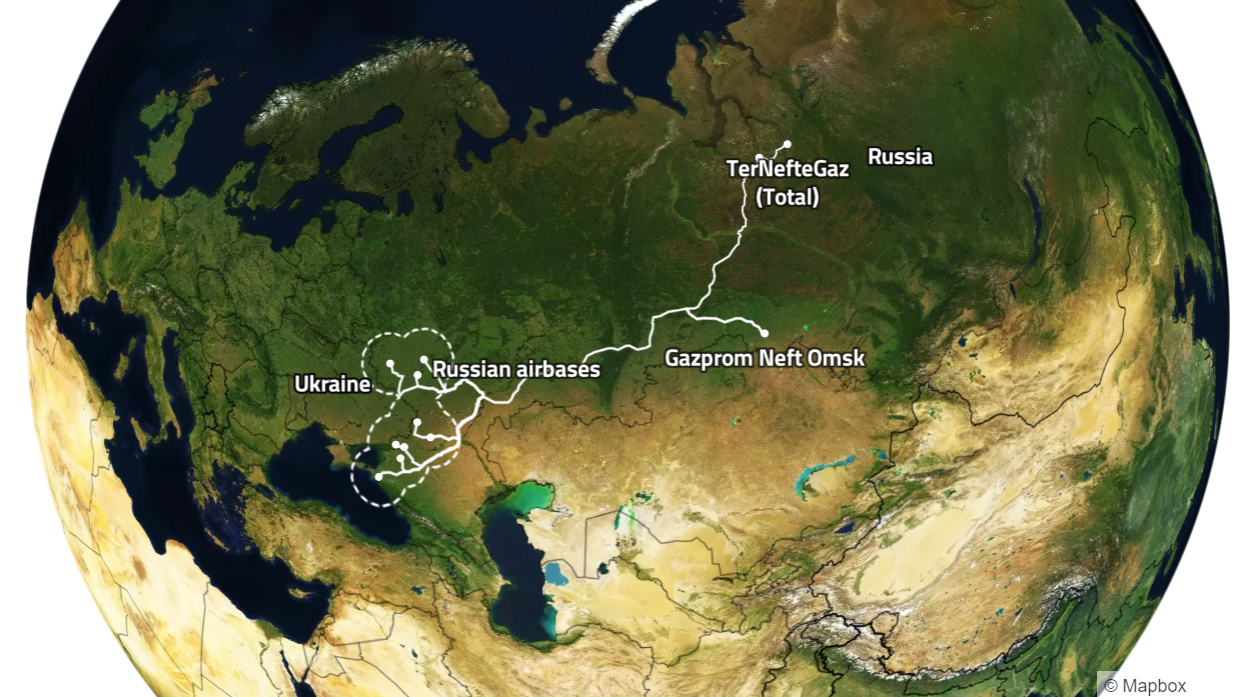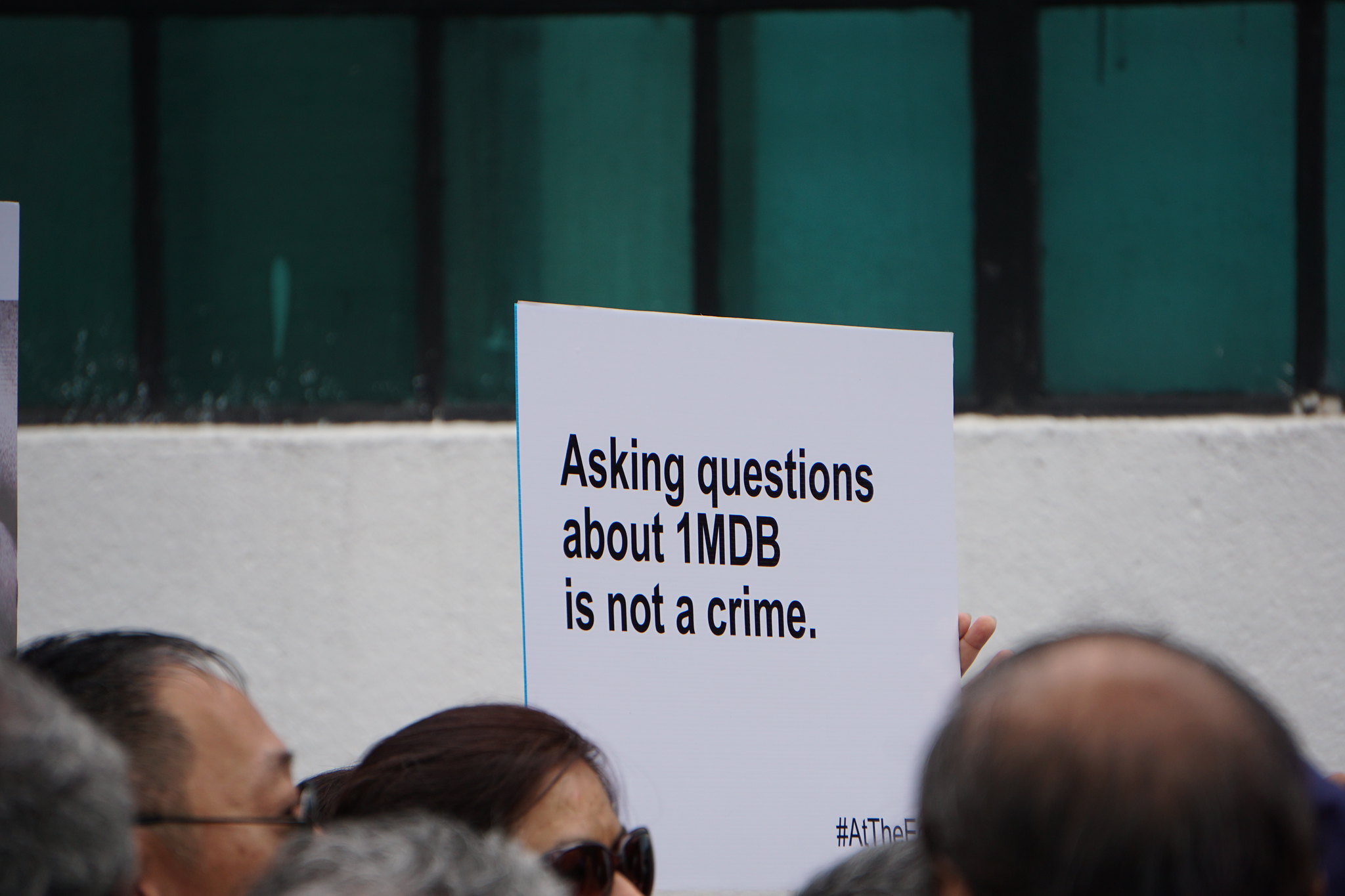Fuelling Putin’s war machine: How obscure rail freight data revealed oil scandals

Putin’s war on Ukraine and fossil fuels are closely linked. Revenues from oil and gas exports finance about 45% of the Russian federal budget. Europe’s dependence on fossil fuels, and Russian gas in particular, hands Putin extraordinary power. His decision to reduce gas flows to Europe has left Europeans exposed to extraordinary energy bills threatening to plunge millions into poverty and raising the spectre of power blackouts this winter.
Since the invasion of Ukraine on February 24, Global Witness has been working hard to highlight the intimate connection between fossil fuels, war and the cost-of-living crisis. We have been pushing for robust energy sanctions on Russia that, if implemented effectively, should stymie the vast amounts of cash currently going to the Kremlin and affect its ability to wage war. In tandem, we have been calling for a drastic scale-up of ambition on renewables and energy efficiency measures.
The current crisis has its roots in fossil fuels, and it is the moment for the world to double down on decarbonisation, so that petro-dictators like Putin cannot project power through their control of oil and gas again.
Global Witness’ approach to campaigning is to publish investigations that expose underreported aspects of a problem and to use the evidence collected to encourage policy makers to address the issues highlighted. Our work on Russian fossil fuels has focussed on hidden aspects of oil supply chains that reveal important and often alarming insights into the activities of the companies involved.
Our collaboration with the Anti-Corruption Data Collective is essential to this strand of work. Using data acquired through our membership, we have been able to detail the ways in which, indirectly and directly, Western oil companies remain linked to oil and gas from Russia. Two of our most recent stories demonstrate how powerful these types of international and inter-disciplinary collaborations are.
In July, we published a story showing a company owned by Dmitry Kamyshev, a Russian former banker with links to the son of sanctioned billionaire Roman Abramovich, was shipping Russian oil through the Caspian Pipeline Consortium (CPC) to Europe and the U.S. CPC Blend crude oil had not been subject to the oil sanctions announced by the EU, UK and U.S. in the aftermath of the invasion of Ukraine, largely because the bulk of it originates from Kazakhstan.
However, our research — based on rail freight data shared through the Anti-Corruption Data Collective — showed how crude oil from Russian fields was being transported by train to pumping stations along the pipeline. The data identified specific companies potentially profiting from the Russian oil being blended and to Kamyshev himself who has strong links to the UK. This raised important questions about the integrity of the current Russian sanctions regimes in the UK, EU and U.S. which let Russian oil move freely across borders as long as it’s mixed with Kazakh oil.
In August, the French newspaper Le Monde, ran a story on their frontpage revealing that a gas field jointly-owned by TotalEnergies and Novatek had been supplying gas condensate to a refinery producing jet fuel for Russian military planes. This story was based on research provided by Global Witness to Le Monde which tracked the movements of gas and oil across Russia. The story also showed that the air bases where the jet fuel was delivered hosted Sukhoi Su-34s, aircraft reportedly involved in the indiscriminate killings of Ukrainian civilians.
Again, rail freight data supplied by the Anti-Corruption Data Collective was crucial. The data showed the key cargos of oil travelling between the Purovsky gas condensate processing plant, the Gapzrom-owned Omsk refinery and, eventually, of the refined jet fuel to locations near Russian bases. To our knowledge, this kind of data has not been used by other journalists or civil society groups to undertake such detailed supply chain mapping of oil within Russia.
The story on TotalEnergies caused outrage and consternation in France. It led to calls from the French Transport Minister to formally investigate Total, and Ukrainian officials voiced their anger and dismay on social media that a company headquartered in a NATO country was linked to the production of jet fuel used by the Russian military. Two days after the story was released TotalEnergies announced they would be selling their direct stake in the Siberian gas field in question to Novatek, although they made no commitment to divest from Novatek itself – a company in which they retain a 19.4% stake. TotalEnergies itself contested Global Witness’ findings saying that the gas condensate it produced was exclusively used to make products for export.
Fossil fuels are at the heart of multiple crises the world now faces and the trade in them is notoriously opaque. The trade in oil for instance often takes place on the high seas outside of international jurisdiction. The decision by the Russian government to classify much its customs data has meant that good data on the movement of fossil fuels is even harder to come by. Cross-border networks like the Anti-Corruption Data Collective enable groups to pool their resources and shine a light on some of the dark corners.




